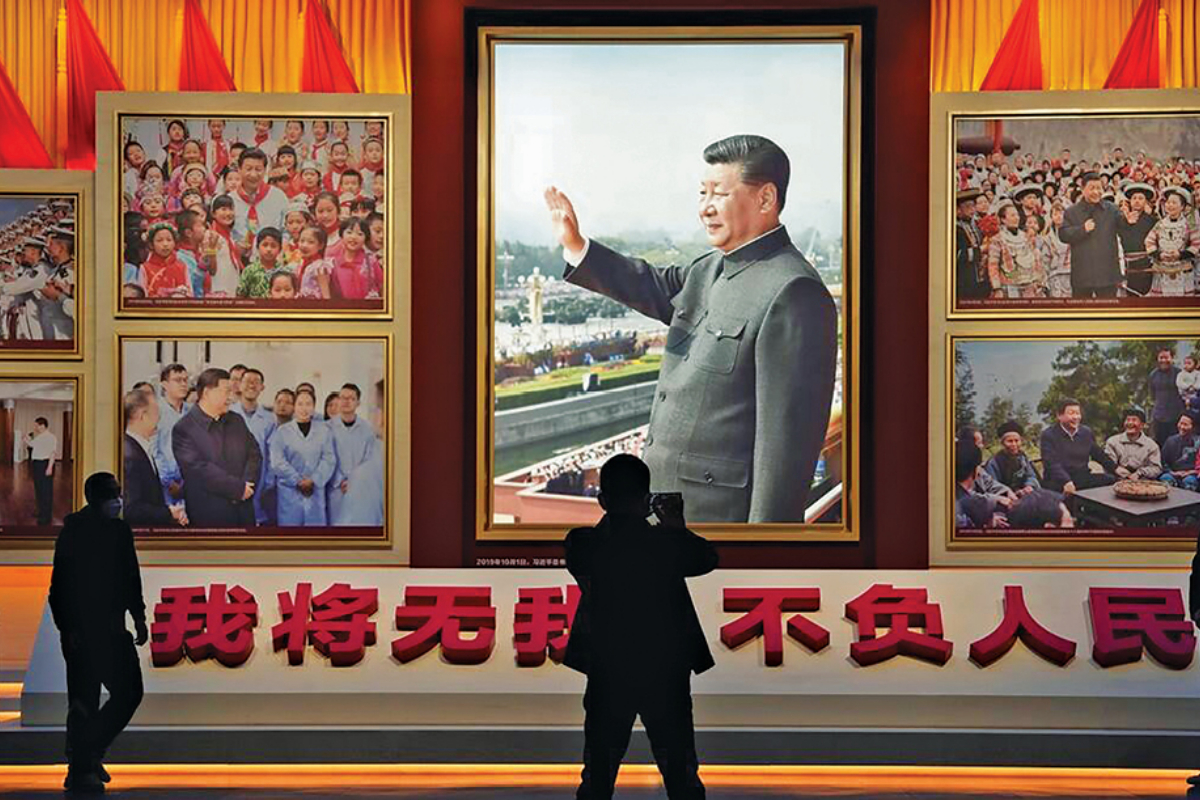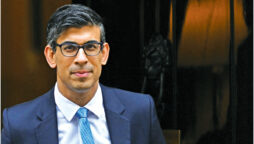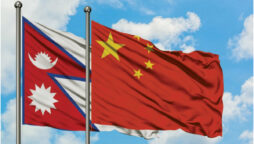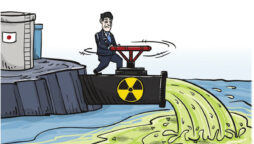
The Global Implications
Guangbin, professor of political science at the China’s Renmin University, says, “No developed country in the West has achieved the goal of development without war, colonial occupation and looting. On the contrary, China has attained development peacefully. The development of China is completely different from the development of the West. China did not take the path of war and plunder for it. China’s experience offers solutions. It encourages developing countries on how they can develop, while maintaining their independence and sovereignty.”
The details of the proceedings of the 20th National Congress of the Chinese Communist Party held in Beijing show how China is steadfastly taking measures for peaceful progress towards development.
In this context, the speech of Chinese President Xi Jinping at the opening session of the Congress can be presented as an important reference. In the speech, the continuation of measures for the complete elimination of the coronavirus pandemic, a fruitful battle for the economic development, continuous pressure on the Taiwan issue and China’s global ambitions were discussed.
The Chinese president said that this is a historic opportunity for the country to establish and promote its status and influence in the world. President Xi said that the process of scientific and technological revolution and industrial evolution is ongoing in the current era and significant changes are occurring in the global balance of power. China is coming forward with its strategic opportunities to advance development.
On this occasion, the Chinese Communist Party must move forward with a sense of purpose with determination and self-confidence, so that we do not fall prey to the mistakes under pressure or retreat from the action due to threats or under the influence of cowardice.
Highlighting the basic principles of the Chinese foreign policy, President Xi said that the policy is based on respect for all countries, we believe in freedom and peace. We are against power politics, hegemony, cold war mentality and double standards.
Under the leadership of President Xi, the Chinese Communist Party has determined the basic goals of the local populace for the new decade and the new era and, of course, during President Xi’s tenure, many concrete steps have been taken and new concepts have been implemented, which highlighted that the world does not need a single pillar or a single centre of power but there can be an alternative centre or pillar of the world, which can be established on the basis of peace, development, equality, respect and non-hegemony.
President Xi addressed nearly 3,000 delegates at the 20th Congress of the Chinese Communist Party at the Great Hall of the People in Tiananmen Square.
The selection of these delegates started last year in November 2021. These 3,000 delegates are chosen from among the entire membership of the Chinese Communist Party through a vigorous political process. This party is the largest party in the world in terms of memberships and it is surprising that the total memberships of the Chinese Communist Party consists of 96.7 million members and the party is always engaged in political and productive activities. In the Western world, false narrative of organisational dictatorship is deliberately circulated against the party.
All decisions of the Communist Party are made by the Central Committee after extensive consultation at the lower level and all major decisions of the Central Committee are ratified by the Congress. The National Congress is responsible to formulate the policy and strategy of the party and the government.
President Xi gained Party membership through his unremitting efforts during China’s Great Proletarian Cultural Revolution. The Western world presented a horribly negative image of this Cultural Revolution but this revolutionary process of the party refinement integrated the Chinese people, the party and the rural population.
President Xi’s father, Xi Zhongxun, was one of the central figures of the Chinese Revolution, heading the party’s propaganda wing. He was also elected as the prime minister of the country and vice chairman of the National People’s Congress after the Chinese Revolution.
During the Cultural Revolution, his father was sent to a factory in Hainan for work. Mao Zedong himself, the leader of this revolution, also worked with the peasants in the fields. The purpose of the Cultural Revolution was to align the party leadership with the common man and to eliminate bureaucratic attitudes from it.
President Xi first joined the Communist Youth League in 1971 after going through several tough stages. In 1974, he got the membership of the Chinese Communist Party. After joining the party, he never looked back. He studied chemical engineering at the university. During his studies, he worked in the party’s labour-farmers-students wing.

During this time, President Xi also studied Marxism, Leninism and Mao Zedong Thoughts, as well as continuing to learn from the People’s Liberation Army. He wrote his doctoral thesis on the topic of Marxist ideology and theoretical education. He assumed leadership of the party, state and the armed forces in the country at the 18th Congress of the Communist Party of China.
Anti-bribery is one of the most important things China has emphasised in its governance system. In China, exemplary punishments are given to corrupt officials. Tong Daochi, an important official in China’s southern province of Henan, was prosecuted for corruption. He was the security regulator of his province. Daochi was sentenced to death after being found guilty. He was accused of taking $4.10 million as bribe.
Similarly, last month, a Changchun court in northeast China’s Jilin province executed former justice minister Fuzhenghua and four powerful police officers on bribery charges. The same court sentenced another former Jiangsu officer, Wang Laik, to death just hours after the verdict. The officer was accused of making fake identity cards and having links with a criminal gang. Besides being a member of the Provincial Communist Party Committee, Laik was also a member of the Provincial Political and Legal Committee.
Xiaoyong Kong, a key politician under former president Hu Jintao, was sentenced to life imprisonment for abuse of power. These are just a few examples of tough anti-corruption penalties that point to a crackdown on rampant corruption, looting of national resources and the abuse of power in the developing countries.
The role of Zhao Lijie, secretary of the Central Disciplinary Commission of the Chinese Communist Party, head of the party’s organisational department and the member of the Standing Committee of the Politburo, cannot be ignored in China’s latest anti-bribery campaign. He belonged to Chin Ghai province, which is located near Tibet and Xinjiang and was born in Shi Ning.
He also worked as a labourer in remote rural areas during the Great Proletarian Cultural Revolution. He became the governor of his province in 1999 at the age of 42. They directly monitor anti-bribery operations. Lijie is the member of the seven-member Standing Committee of the Politburo, the most powerful institution of the Chinese government.
President Xi, Prime Minister Li Keqiang, National People’s Congress Chairman Li Zhanshu, Vice Premier Han Xing, political theorist Wang Honing, Bureau Political Adviser Wang Yang are also members of the Standing Committee of the Politburo.
Now that the 20th Congress will elect a new Standing Committee, it will be interesting to see how many of these members are re-elected for the next term.
It was generally believed that there was no possibility of any change in the current structure of the Chinese Communist Party and the Chinese government and yet China’s current leadership lived up to the ideals and standards of the previous leadership but somewhat beyond them.
Moreover, China has been exposed to new directions of development and if the development of the world’s seven major economies is reviewed, surprising results emerge. In the current situation, the GDP of the United States is over $23 trillion; China is over $18.3 trillion; Japan is over $5.9 trillion; Germany is over $3.8 trillion; Great Britain is over $2.7 trillion; India is over $2.6 trillion and the GDP of France is around $2.6 billion.
The Chinese economy is expanding through very peaceful means. China has broken the concept of a one-pillar world in the field of economy. The superpower Russia of 35 years ago is no longer in the race for economy because it simultaneously abandoned its ideology, political and state structures.
On the contrary, China is still present on the world map with socialism, Marxism, the doctrine of Chinese characteristics, its political organisational structure and geographical security and sovereignty.
The US and the European countries are standing on the brink of recession. Britain’s economic crisis is turning into a political crisis that is undermining and toppling governments. After Boris Johnson, Liz Truss has also resigned. Recession terror has gripped the American families. Around 84 per cent believe that a recession will engulf the country before the end of this year.
Similarly, 76 per cent of the people are of the view that they will have to change their lifestyle and 74 per cent of the Americans think that inflation will negatively affect their household budgets. The people are concerned about the loss of employment and income.
At the 20th National Congress of the Communist Party of China, President Xi said: “The world is again at the crossroads and its future must be decided by the people of the world.”
“The Chinese people are ready to work hand-in-hand with the people around the world to create a better future for humanity. China is determined and committed to a foreign policy based on the goal of achieving world peace and common development,” he added.
Ten years ago, China had diplomatic relations with 172 countries and now the number of those countries has increased to 181. Similarly, 10 years ago, China was working in partnership with 41 countries and now its partnership has expanded to 113 countries.
The discussions and decisions made in the Chinese National Congress will not only affect China or the Chinese people but the results obtained from this congress will have a lasting impact on the world in the coming times.
Catch all the The Globe News, Breaking News Event and Latest News Updates on The BOL News
Download The BOL News App to get the Daily News Update & Live News.











 Read the complete story text.
Read the complete story text. Listen to audio of the story.
Listen to audio of the story.